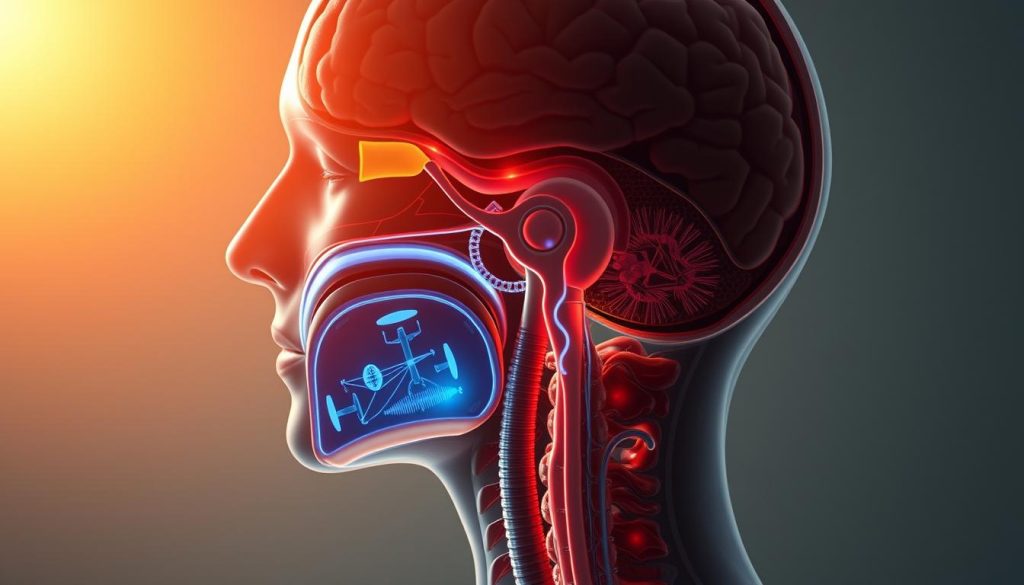Sleep takes up a significant portion of our lives, accounting for about one-quarter to one-third of the human lifespan. It’s not just a passive state but an active process essential for maintaining quality of life. According to Johns Hopkins sleep expert Mark Wu, M.D., Ph.D., sleep plays a vital role in both mental and physical health.
During sleep, the brain remains busy, supporting memory, learning, and overall brain plasticity. This dynamic period helps us recharge and prepare for the challenges of daily life. Understanding how sleep works can shed light on conditions like sleep apnea, which disrupts rest and impacts health.
Circadian rhythms, our internal biological clock, regulate sleep patterns and influence how well we rest. By exploring these rhythms, we can better grasp the connection between sleep and conditions like sleep apnea. This article serves as a guide for anyone eager to learn more about the fascinating processes behind sleep.
Exploring the Intricacies of Sleep and Its Biological Rhythms
The brain orchestrates sleep through distinct phases, each with unique functions. These phases, known as REM and non-REM sleep, work together to ensure rest and recovery. By understanding these cycles, we can appreciate how sleep supports mental and physical health.
Understanding REM and Non-REM Sleep Cycles
Non-REM sleep consists of three stages: light sleep, deep sleep, and the transitional phase. Light sleep helps the body relax, while deep sleep is crucial for memory consolidation and physical restoration. During deep sleep, heart rate and breathing slow down, allowing the body to repair tissues and strengthen the immune system.
REM sleep, on the other hand, is characterized by rapid eye movement and vivid dreams. This phase is essential for emotional regulation and cognitive function. Interestingly, the brain temporarily paralyzes the body during REM sleep to prevent acting out dreams.
The Role of the Brain and Sleep Processes
The brain plays a central role in regulating sleep cycles. It coordinates the transition between REM and non-REM stages, ensuring each phase fulfills its purpose. Research shows that disrupted sleep patterns can impair brain function, affecting memory, focus, and overall health.
For example, studies highlight how deep sleep enhances learning by processing information gathered during the day. Similarly, REM sleep supports creativity and problem-solving by reorganizing neural connections. These findings underscore the importance of quality sleep for optimal brain activity.
| Sleep Phase | Characteristics | Functions |
|---|---|---|
| Non-REM Sleep | Slow heart rate, deep breathing, reduced body temperature | Memory consolidation, physical restoration, immune support |
| REM Sleep | Rapid eye movement, vivid dreams, temporary paralysis | Emotional regulation, cognitive function, creativity |
By exploring these sleep phases, we gain insight into how our bodies and brains work together to maintain health. Whether it’s improving memory or boosting creativity, each phase plays a vital role in our well-being.
The Science of Sleep: Unraveling Key Mechanisms
Genetics and light cues play a pivotal role in how we rest and recharge. Researchers have uncovered fascinating details about the biological processes that govern sleep. These discoveries help us understand why some people struggle with sleep disorders.
Genetic Factors and the “Wide Awake” Gene
Scientists at Johns Hopkins identified a gene called “wide awake” in fruit flies. When this gene is removed, the flies have trouble falling and staying asleep. This finding highlights the importance of genetics in sleep regulation.
Studies like these provide valuable insights into sleep disorders. They suggest that similar genes might influence human sleep patterns. Understanding these genetic factors could lead to better treatments for conditions like insomnia.

Melatonin, Light Cues, and Their Impact on Sleep
Melatonin, a hormone produced by the brain, plays a key role in sleep. Its production is regulated by light cues, which signal the body when it’s time to rest. Exposure to bright light at night can disrupt this process, making it harder to fall asleep.
Research shows that maintaining a consistent sleep schedule helps regulate melatonin levels. This simple habit can improve sleep quality and overall health. By understanding these mechanisms, we can take steps to enhance our rest.
Books and articles by sleep experts often emphasize the importance of light and melatonin. These resources provide practical tips for creating a sleep-friendly environment. Following their advice can make a big difference in how well we rest.
Examining Sleep Apnea Through the Lens of Circadian Rhythms
Disruptions in circadian rhythms can lead to significant sleep-related issues, including sleep apnea. Our internal clock, or circadian rhythm, regulates sleep-wake cycles and other bodily functions. When this rhythm is off, it can affect breathing patterns and overall sleep quality.

How Disrupted Rhythms Affect Breathing and Sleep Quality
Circadian rhythm disruptions can interfere with the timing of sleep stages. This misalignment often leads to irregular breathing patterns, a hallmark of sleep apnea. When the internal clock is out of sync, the body struggles to maintain consistent airflow during rest.
For example, research shows that people with irregular sleep schedules are more likely to experience sleep apnea. This is because the brain and body rely on consistent cues to regulate breathing. Without these cues, breathing becomes shallow or pauses altogether.
Insights from Johns Hopkins Research
Johns Hopkins researchers have studied the link between circadian rhythms and sleep apnea. Their findings reveal that improper timing in the internal clock can worsen sleep apnea symptoms. This highlights the importance of maintaining a regular sleep schedule.
One study found that individuals with consistent sleep patterns experienced fewer apnea episodes. This suggests that aligning sleep with natural circadian rhythms can improve breathing and overall sleep health.
| Factor | Impact on Sleep Apnea |
|---|---|
| Circadian Rhythm Disruption | Irregular breathing patterns, increased apnea episodes |
| Consistent Sleep Schedule | Improved breathing, reduced apnea episodes |
By learning how circadian rhythms influence sleep, we can take steps to improve our rest. Simple habits, like going to bed at the same time each night, can make a big difference. These practices help the brain and body work together to maintain healthy sleep patterns.
Lifestyle Factors Influencing Sleep Health
Our daily routines and habits play a crucial role in shaping our sleep quality and overall health. Small changes in how we live can make a big difference in how well we rest. From exercise to diet, every choice impacts our sleep patterns and wellbeing.

Daily Habits to Enhance Sleep Quality
Creating a consistent sleep schedule is one of the most effective ways to improve rest. Going to bed and waking up at the same time every day helps regulate the body’s internal clock. This consistency makes it easier to fall asleep and wake up feeling refreshed.
Limiting screen time before bed is another key habit. The blue light from phones and computers can interfere with melatonin production, making it harder to fall asleep. Instead, try reading a book or practicing relaxation techniques to wind down.
Regular physical activity also supports better sleep. Exercise helps reduce stress and anxiety, which are common causes of sleep problems. Aim for at least 30 minutes of moderate activity most days of the week.
The Intersection of Sleep, Brain Function, and Overall Wellbeing
Quality sleep is essential for optimal brain function. During rest, the brain processes information, consolidates memories, and clears out toxins. Poor sleep can impair focus, memory, and decision-making, affecting daily life.
Chronic sleep deprivation increases the risk of health issues like depression, high blood pressure, and weakened immunity. Prioritizing sleep is a simple yet powerful way to protect both mental and physical health.
By making small adjustments to daily habits, anyone can improve their sleep quality and overall wellbeing. These changes not only enhance rest but also support a healthier, more balanced life.
| Habit | Benefit |
|---|---|
| Consistent Sleep Schedule | Regulates internal clock, improves sleep quality |
| Limit Screen Time Before Bed | Enhances melatonin production, promotes relaxation |
| Regular Exercise | Reduces stress, supports deeper sleep |
Wrapping Up Your Sleep Journey
Understanding how our internal clock works can transform your rest. Circadian rhythms, genetics, and daily habits all play a role in shaping sleep quality. By aligning your routine with natural rhythms, you can improve both rest and health.
The brain’s role in sleep is fascinating. It processes memories, removes waste, and supports overall function. Learning about these processes helps us appreciate the importance of quality rest.
For deeper insights, consider exploring a trusted book on sleep science. Small changes, like consistent bedtimes and reducing screen exposure, can make a big difference. Start your journey to better sleep today—your brain and body will thank you.

